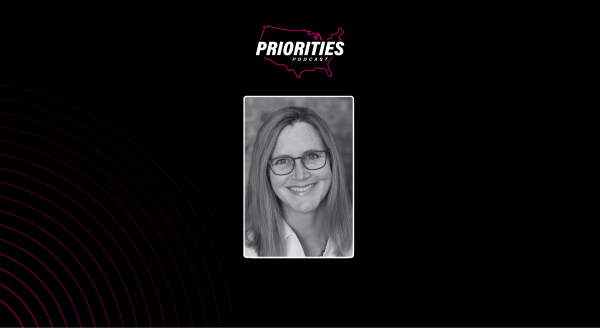
- Sponsored
Looking beyond COVID-19 to build a digital government
State and local government leaders should lean on advances to cloud made during the pandemic to accelerate digital services that will provide additional benefits in a post-pandemic world, Okta’s Kelsey Nelson says.
“Many of the IT leaders we talked to within state and local agencies had been starting along a lot of these modernization paths [before the pandemic],” says Nelson, a product marketing manager at the company, in a new podcast underwritten by Okta. “That idea of digital services is one that we see a lot of acceleration that happened as a result of the pandemic.”
Continuing to push government even further online
Nelson’s comments on the acceleration of digital services come in the wake of the release of the National Association of State Chief Information Officers’ annual State CIO survey. The survey highlighted the role of the CIO in response to the COVID-19 pandemic and how the role will evolve into the future.
“One CIO [in the survey] said this isn’t even a question at this point — government is now digital, our world is now going to be very largely digital, so we’re seeing a lot of this work that had happened and the foundations that had been maybe underway over the past year really take off as a result of the pandemic,” Nelson says.
In the report, almost all CIOs reported that improving the online experience for citizens was among their top priorities — but the digital transformation underway is not exclusively limited to the external constituent experience, but also internal to government operations as well.
“We’re even seeing some of the top changes that CIOs are expecting based on this report are things like expanded work from home, the ability to expand collaboration platforms, remote meetings and really that increased priority and investment on this legacy modernization that enables a lot of that remote and digital collaboration sort of distributed in the future,” Nelson says.
Finding areas for collaboration
“There’s been some amazing responses to this crisis at all levels of government with cross-collaboration across agencies, working with private entities, really coming together to help deliver a response during a crazy time right now,” Nelson says.
Nelson pointed to the work underway in the state of Illinois. As the pandemic unfolded, the state restructured some IT operations with a focus on secure access to applications so that agency staff could continue to serve residents. In the process, they began to look for opportunities to share databases and information with local governments.
“[The state] started to look at other technologies or ways that they can start to connect state employees, but also county employees to a centralized database,” Nelson says. “Then using services certainly like identity to bring all of those workers in from both the state and local level so they can start to deliver a better response and also protect access to what is very critical information.”
Take ‘this moment of uncertainty’ into power
For both state and local governments and their vendor partners, a large percentage of the work underway at this moment is designed to set a foundation for the future.
While tight budget environments mean government technology projects need to be centered around efficiency, leaders are remaining focused on the governance side of the equation to facilitate easier integration of new technologies into their environment.
“[Efficiency] really comes down to some of those foundation components,” Nelson says. “Being able to more easily integrate things across your stack is going to be really, really foundational and really important to set you up for that long-term success.”
As agencies approach that long-term success, though, they should turn to what they learned during the pandemic response, Nelson says.
“[COVID-19] has really just forced a mindset shift,” she says. “We’ve talked about acceleration early in a lot of the projects that have been underway. In continuing, just keep that open mind and let’s see what we can do. Let’s take this moment of uncertainty and maybe turn that uncertainty into something that we can use to power the future.”
Kelsey Nelson is product marketing manager at Okta, which specializing in IT security solutions. Prior to joining Okta, Nelson led product and business communications at tech startups varying from enterprise software to edtech.
Listen to the podcast for the full conversation on accelerating digital services in state and local government. You can hear more coverage of “IT Modernization in Government” on our StateScoop radio channels on Apple Podcasts, Spotify, Google Play, Stitcher and TuneIn.
Also, read more from leaders about how state and local agencies are modernizing identity authentication.
This podcast was produced StateScoop and underwritten Okta.


